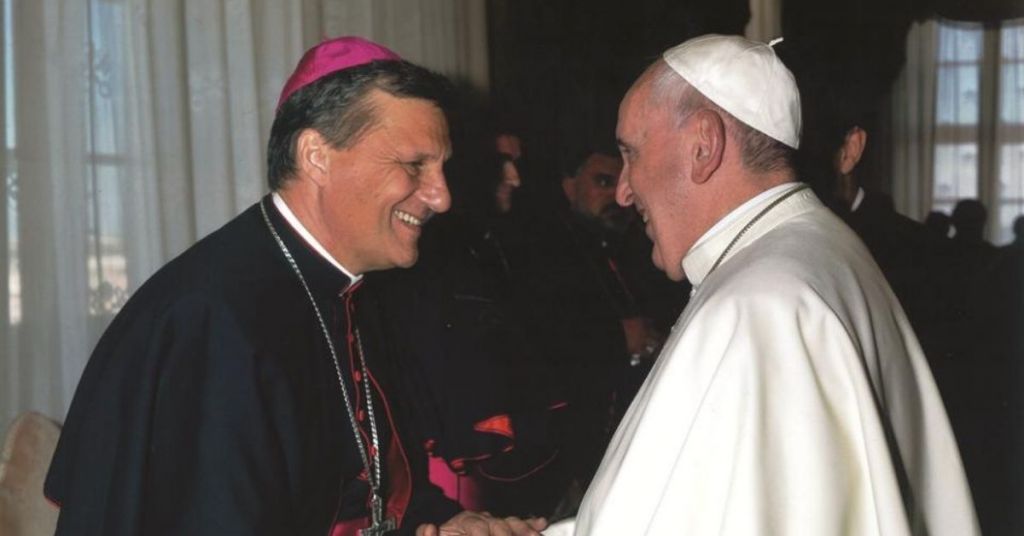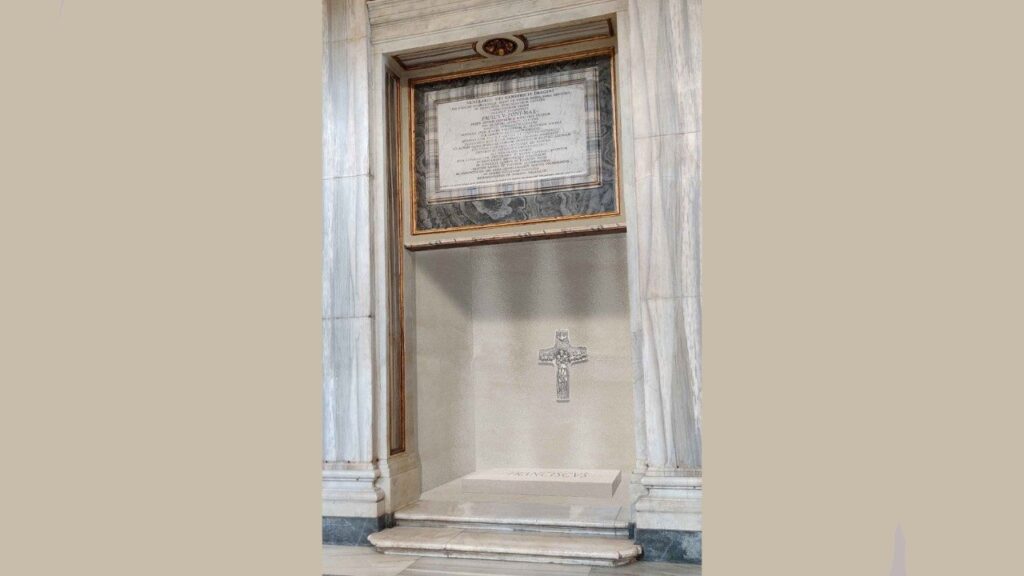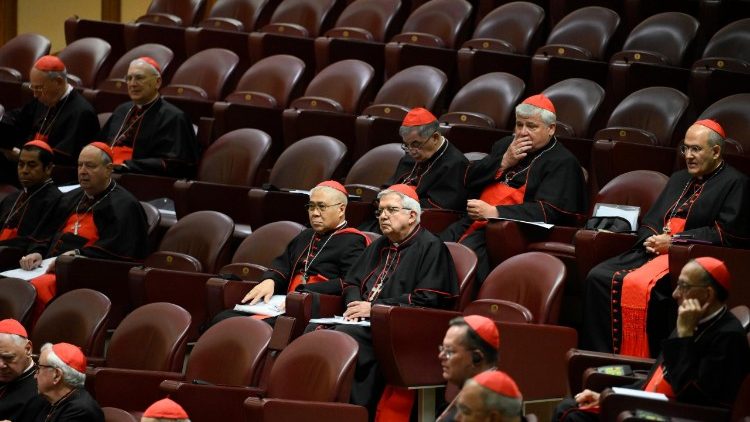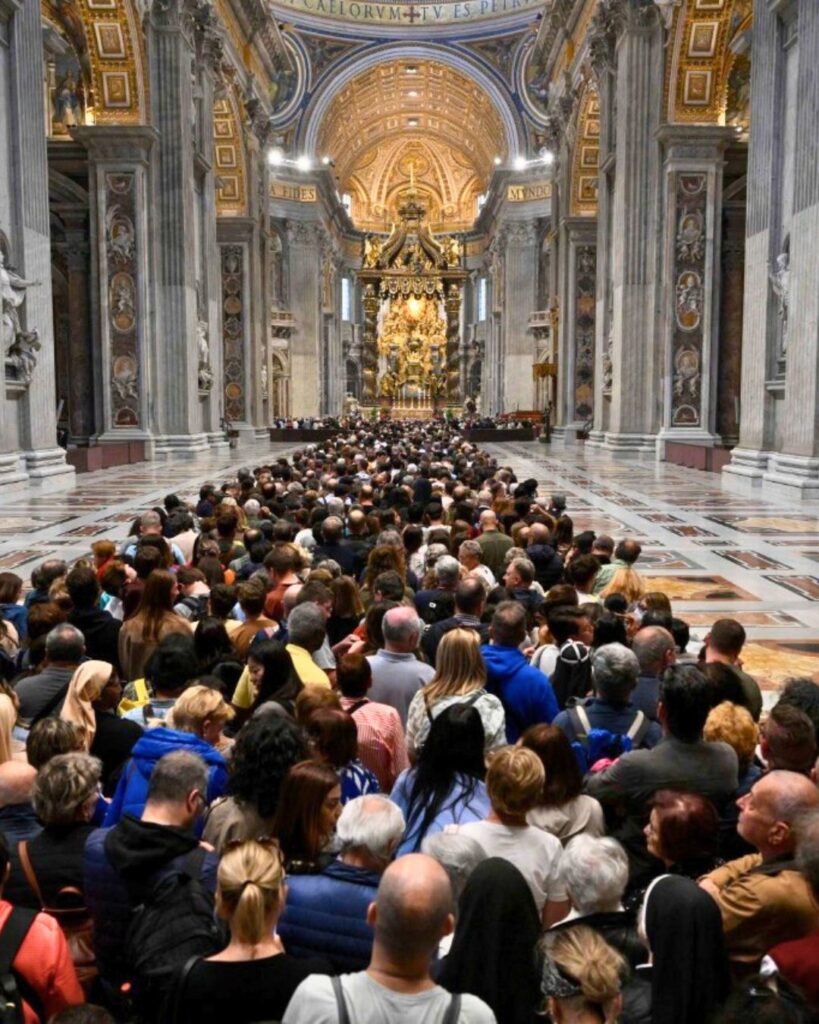Cardinal Grech Asks Prayers for Synodal Process
Letter to all Monastic Communities

Cardinal Mario Grech, Secretary-General of the Synod of Bishops, sent the letter below on August 28, 2021, to all monastic communities.
With little more than a month to go before the official opening (October 9-10 2021) of the next Synod of Bishops on the theme For a Synodal Church: Communion, Participation and Mission, Cardinal Grech asks religious men and women throughout the world to pray for the synodal process (that will end in October 2023).
***
Vatican, 28 August 2021
Saint Augustine
Prot. N. 210207
Dear brothers and sisters called to the monastic and contemplative life,
Our Holy Father Pope Francis, in his teaching, has often reminded the entire Church of our need to “walk together” (along with its beauty), starting a synodal process that involves “every level of the Church’s life” (Document of the Synodal Process, 3). The Pope affirms that “It is precisely this path of synodality which God expects of the Church of the third millennium.” (Address of His Holiness Pope Francis commemorating the 50′h anniversary of the institution of the Synod of Bishops, 17 October 2015). Concretely, this journey is happening in a synodal process that opens in the local Churches beginning in October 2021 and concludes with the celebration of the Synod of Bishops in Rome in October 2023 (cf. Document of the Synodal Process).
On the threshold of this decisive step for the Church of our time, I turn to you, dear brothers and sisters, with your precious vocation that enriches the entire ecclesial community, because you are custodians and witnesses of a fundamental reality for the synodal process that our Holy Father invites us to realize. I am convinced that there are three words, central to monastic and contemplative life, which you safeguard in the Church’s life in your sharing with sisters and brothers: listening, conversion, communion.
Above all, “listening”. In the above-cited discourse, the Holy Father affirms that “A synodal Church is a Church which listens, which realizes that listening ‘is more than simply hearing’.” The experience of listening has always been central to monastic and contemplative life, so much so that often monastic rules from different traditions are collections of Biblical and Gospel expressions, affirming that monastic and contemplative life is an “incarnation” of the Word of God that has been listened to, meditated upon, and interiorized. In this regard, we cannot fail to cite the beginning of the Rule of St. Benedict, the father of western monasticism: “Listen carefully, my son!” (RB, Prologue, 1). This invitation to listen permeates your entire life, from your listening to the Word of God in the Sacred Scriptures all the way to your listening to your brothers and sisters in community as well as to the men and women of our time. To listen, precisely because it is more than physical hearing, is to learn. Your life is a gymnasium in which diligent listening to the Scriptures, “as a baby sucks milk from his mother’s breast” (Ephrem the Syrian), educates one in a profound listening to oneself, others, and God. The hospitality, so common in monastic and contemplative communities, is itself an experience of welcome and of listening and has its source in your frequenting the Scriptures, in lectio divina, and in other spiritual approaches to the Word of God.
The second word that characterizes your life, and which I should like to emphasize, is “conversion”. Once again, in the same address, the Holy Father affirms that “Journeying together — laity, pastors, the Bishop of Rome — is an easy concept to put into words, but not so easy to put into practice”. A true synodal journey cannot disregard our willingness to be converted by our listening to the Word of God and by the Holy Spirit present in our lives. Monastic and contemplative life reminds the Church that the invitation to conversion is at the heart of the proclamation made by Jesus, who traveled through the villages of Galilee saying: “Repent, for the kingdom of heaven is at hand” (Matt 4.17). Baptism, the fundamental vocation for all of the Lord’s disciples, is the first conversion worked by the Holy Spirit within our hearts; at the same time, the entirety of Christian life must remain open to a journey of conversion to God and his Word. Even from a purely human point of view, we know that true listening also requires reciprocal conversion that invites us to leave our securities behind so that we might enter the difficult but indispensable terrain of dialogue. In your experience of community life, in which synodality must surely be a fundamental element, you know both the “beauty” of walking together as well as the inevitable difficulties and possible wounds. For this reason, and for the synodal process our Holy Father has suggested to the universal Church, you are “experts” of this dignity of conversion in its positive aspects as well as in its difficulties; difficulties that should not discourage but rather should be lived in a true spirit of faith and hope.
The third word of which you are custodians for everyone is “communion”. The Pope insists on this dimension even in reference to his own service as the Bishop of Rome. He affirms: “The fact that the Synod always acts cum Petro et sub Petro — indeed, not only cum Petro, but also sub Petro — is not a limitation of freedom, but a guarantee of unity” (Address of His Holiness Pope Francis commemorating the 50′h anniversary of the institution of the Synod of Bishops, 17 October 2015). Your life also gives witness to this: the goal of listening and conversion is communion. In your communities, you well know that communion is the ultimate criterion for discernment by which the synodal journey is verified. We call to mind the story of the two Emmaus wayfarers who were approached by the Lord on the way, their disappointment and disillusionment (cf. Lk 24. 13- 35). The Lukan episode ends with a scene of “ecclesial verification” that signals the point of the story: “So they set out at once and returned to Jerusalem where they found gathered together the eleven and those with them who were saying, ‘The Lord has truly been raised and has appeared to Simon!”’ (Lk 24.33-34). Ecclesial communion is discernment’s true seal, confirming the synodal journey. You, with your communitarian life, testify to the truthfulness of this affirmation that we harvest from the Emmaus story. In fact, in community life, in religious life, you experience how much communion (which is not the same as uniformity) is effectively the verifying criterion of an authentic, shared journey in faith.
But the reason moving me to write to you at this time that is so close to the opening of the synodal process in October touches on another word that belongs to the deepest chords of your vocation: “prayer”. This term is profoundly linked to the other three terms that we have just examined. Our Holy Father Pope Francis often repeats: “pray for me!”. Today I, as interpreter of the meaning that the Pope wants to give to the synodal path, ask you: “pray for the Synod!”. If the synodal path is not, above all, an ecclesial journey of love to the Father through Christ in the Spirit, it will surely not bear the hoped-for fruit. Prayer is the dynamic encounter of love in the Trinitarian God, in the pluriform unity that urges us on to be living witnesses of this love. Regarding evangelization, in Evangelii gaudium our Holy Father Pope Francis recommends that we be “firmly rooted in prayer, for without prayer all our activity risks being fruitless and our message empty” (EG, 259). There is a ministry of praise and prayer of which you are the living sign in the Church. The writer of Psalm 134 invites the Levites and the priests of the Temple in Jerusalem to bless the Lord “day and night”, to raise up their hands in incessant prayer. There are persons who, chosen from among the people, have the task of ensuring that the ministry of prayer and praise, day and night, never fails in the temple of the Lord. The priests and the Levites do not take the place of the people in serving God but are a living sign of the continual praise that rises endlessly from the faithful to the Most High, even though they are not present in the Temple. The Lord says to Moses: “You shall be to me a kingdom of priests, a holy nation” (Ex 19.6). Therefore the entire people has the task of being a “mediator” with God in the midst of all humanity, and of praising him. However, within the people, there are some who have the task of expressing and manifesting this dimension that belongs to all of Israel and to its mission in the midst of all the nations. In the light of this text, we can intuit the authentic value of the ministry of prayer and praise of which you are custodians by your vocations: you have the task within the community of carrying out the ministry of prayer, intercession and blessing. In this phase of the synodal process I do not ask you to pray in the place of other brothers and sisters, but to keep everyone’s attention on the spiritual dimension of the journey we are undertaking, to know how to discern the action of God in the life of the universal Church and of each local Church. You are for everyone, as were the Levites and the priests in the Psalm, “ministers of prayer” who, through praise and intercession, remind everyone that without communion with God there can be no communion among ourselves.
Dear brothers and sisters, I wanted to turn to you at this time in which we are preparing to undertake the synodal process, to ask you to be custodians of the “deep breath of prayer” (EG, 262) for everyone. Your contribution in the various stages of our synodal journey will surely not lack other aspects; however, your vocation helps us, even if only by your presence, to be a Church which listens to the Word, capable of permitting the Spirit to convert her heart, persevering in “the communal life, […] and the prayers” (Acts 2.42).
Mario Cardinal Grech
General Secretary
Related

Thousands of faithful bid farewell to Pope Francis in St. Peter’s Square
Exaudi Staff
26 April, 2025
2 min

Francis’s Tomb: A Legacy of Humility and Closeness
Exaudi Staff
25 April, 2025
4 min

Cardinals Intensify Their Spiritual and Pastoral Preparation at the Third General Congregation
Exaudi Staff
24 April, 2025
1 min

Rome unites in prayer: the world bids farewell to Pope Francis with love and gratitude
Exaudi Staff
24 April, 2025
2 min
 (EN)
(EN)
 (ES)
(ES)
 (IT)
(IT)

